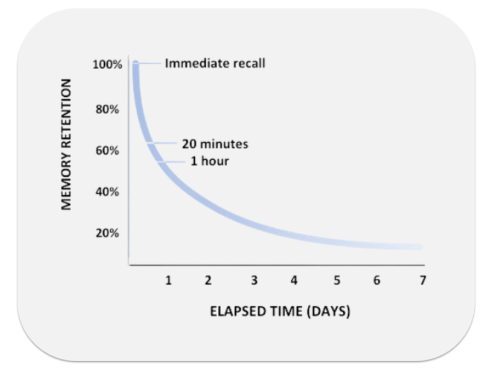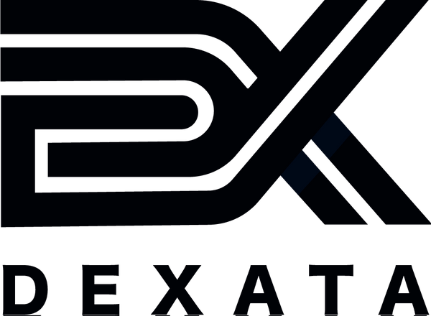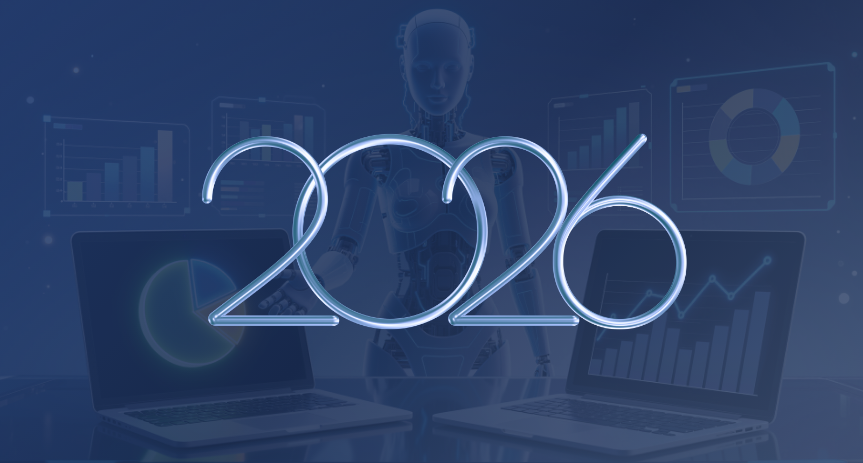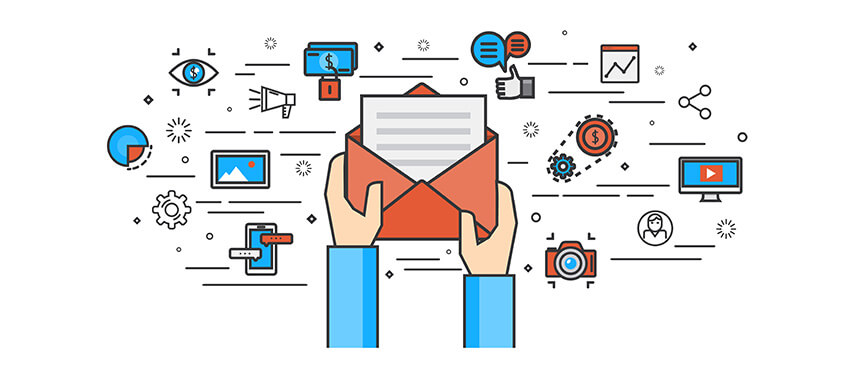The Forgetting Curve: The Importance Of Going Beyond Traditional One-Day-Training

Staying up-to-date with the latest tools and strategies is essential for success, especially for those of us in the fast-paced world of marketing technology (MarTech). However, the traditional one-day training sessions that have long been the norm might not be the most effective way to retain and apply this knowledge. To understand why, we have been delving into the concept of the forgetting curve, a phenomenon first studied by the German psychologist Hermann Ebbinghaus.
Ebbinghaus’s research revealed a fact we have been astonished by, but not surprised about. Without any extra effort, more than 50% of what we learn is forgotten within an hour, 2/3rds by the end of the day, and a staggering 80% by the end of the month. These statistics should make anyone pause and rethink how we do business training, especially those investing time and resources into one-day training sessions.

The Challenges of Traditional One-Day Training
While one-day training sessions can provide a quick boost of knowledge, we find they come with their own set of challenges that limit their effectiveness.
1. Rush and Overwhelm
One of the most significant issues with cramming comprehensive content into a single day is the overwhelming nature of the experience. Learners often struggle to absorb and apply what they’ve learned effectively. The sheer volume of information presented can leave them feeling lost and disoriented.
2. One-Size-Fits-All
Attendees at these sessions typically have diverse backgrounds, levels of expertise, and learning styles. Traditional one-day formats tend to be rigid and may not cater to individual needs adequately. What works for one participant may not work for another, leading to gaps in understanding.
3. Limited Interaction and Hands-On Practical Opportunities
With tight schedules and a focus on covering material quickly, there’s often limited time for hands-on practice, in-depth discussions, or addressing specific challenges that participants face in their unique professional contexts. This lack of interaction can hinder the application of knowledge in the real world.
And last but certainly not least…
4. Lack of Continuous Learning and Reinforcement Opportunities
Ebbinghaus’ study reinforces that without reinforcement, learners tend to forget up to 50% within an hour and 80% of what they’ve learned within a month. This alarming rate of knowledge loss underscores the need for a more effective approach to training and continuous learning.
Going Beyond Traditional One-Day Training with CLaaS
Recognising these challenges, we have invested in developing an innovative and continuous approach to education and training. Our Continuous Learning as a Service (CLaaS) framework is a prime example of how we can move beyond traditional one-day training and embrace more effective methods.
1. Ongoing Support
Our MasterCLaaS programs don’t end after a one-day session. They provide learners with continuous support, including access to their MarTech helpdesk. This means that learners can reach out to MarTech experts at any time, ensuring that they receive the guidance and assistance they need when they need it.
2. Emphasis on Learning
The CLaaS approach focuses on “learning” rather than just “training.” It acknowledges that learning is an ongoing process that extends beyond a single day. This shift in perspective encourages learners to engage with the material over a more extended period, increasing retention and application.
3. Practical Exercises
Weekly exercises are a core component of our approach in MasterClaaS. These exercises provide learners with opportunities to apply their newfound knowledge to real-world challenges. Practical application is a powerful tool for retention and skill development, allowing participants to see the direct impact of what they’ve learned.
4. Personalised Feedback
Our CLaaS and MasterCLaaS programs also offer personalised feedback on the solutions to weekly exercises. This feedback loop is crucial for learners to understand where they excel and where they need improvement, fostering a growth mindset and continuous improvement.
Wrapping up…
Ebbinghaus’ forgetting curve is a reminder of the limitations of conventional one-day training sessions. Our CLaaS framework is designed to offer a more effective and sustainable learning path. By championing continuous learning, providing ongoing support, facilitating practical application, and offering personalised feedback, we empower professionals to not just acquire knowledge but to retain it and apply it effectively.







